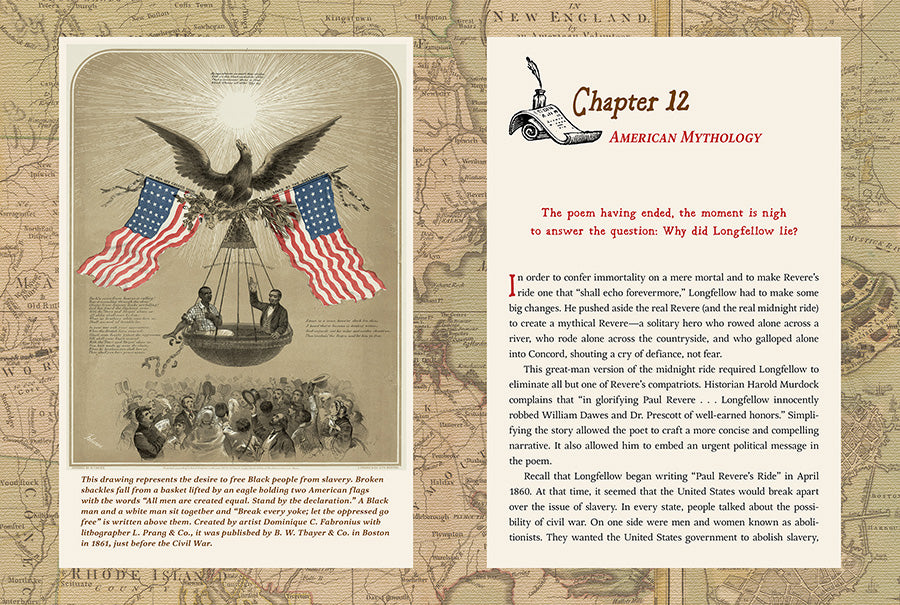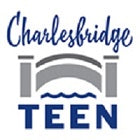Why Longfellow Lied

Jeff Lantos, author
Jeff Lantos is a fifth-grade teacher in Pacific Palisades, California, where he often writes history-based musicals for his students to perform. A UCLA study showed that his students' retention of history is higher than their peers. He was nominated for a 2015 Excellence in Theatre Education Award from the Tony Awards and Carnegie Mellon University. He holds a degree from Brown University and has worked producing musicals on Broadway. Why Longfellow Lied is his first book.
Read more about Jeff.
- A 2022 NCSS-CBC Notable Social Studies book
- A 2022 ILA Honor Book
Kirkus Reviews, starred review
Almost 100 years after Paul Revere’s ride, Henry Wadsworth Longfellow wrote his famous poem. When he penned it, Revere’s ride was barely a footnote to history. Since Longfellow was already a famous poet, his narrative, whether true or not, would frame the soon-to-be-famous story. Educator Lantos uses his teaching skills to work his way through the jaunty verse, analyzing both why the poem works so well and how Longfellow didn’t always stick by the facts. The possible reasons for this are numerous. Sometimes the story bogged down in unfortunate details, such as the abrupt end of Revere’s ride when he was captured by the British before reaching Concord, Massachusetts. Other times, Longfellow exercised poetic license to slow the narrative and enhance suspense, or left out unneeded details to pick up the pace. In addition to his engaging conversational narrative, Lantos includes maps, photographs, and wonderful, brief callout boxes with fascinating historical details, conveying all in a delightful underlying tone of mildly ironic humor that’s just right. Outstanding backmatter rounds out this first-rate presentation of a story that many Americans wrongly believe they know very well. At the same time, Longfellow’s poem remains the star of the show, his tale enriched by the accompanying backstory. This work displays all the qualities of excellence that children deserve. Exemplary myth-busting with appeal that spans audiences from children to adults.
Booklist, starred review
Here’s the bad news: Longfellow’s famous poem “The Midnight Ride of Paul Revere” is riddled with inaccuracies. The good news is that Lantos’ new book meticulously breaks down the actual events on April 18 and 19, 1775, and discusses how they differ from the poetic version. This is not the first book to point out the poem’s shortcomings, but it’s surely the most comprehensive attempt to set the historical record straight for young readers, while explaining why the poet changed the facts in order to reach and inspire his audience. First published a few months before the attack on Fort Sumter, the poem helped galvanize Northern citizens to risk their lives to preserve the country that their ancestors had fought to create 85 years earlier. The poem “was aimed at the heart. It was a call to action. And it worked.” The book’s illustrations, reproduced in color, include period prints, paintings, and maps as well as more recent photos of historic sites. Extensive notes and bibliographic sources are appended. A retired teacher with a talent for delivering historical content by writing and directing musical plays enacted by his fifth-grade students, Lantos knows his audience and writes with an engaging tone. A refreshing approach to American history.
School Library JournalA deeper look at Henry Wadsworth Longfellow’s 1860 poem “Paul Revere’s Ride” that examines the narrative told by the poem and how it compares to the actual events of that fateful night in American history. The author’s approach to this historical comparison is especially accessible to high school students. Call-out boxes throughout provide readers with extra details related to the events of Revere’s 1775 ride as well as make the story richer and give readers a bevy of unique connections to the simpler history they likely learned in the classroom. Perhaps the most impactful part of this book is the situating of Longfellow’s work in the historical context as a call for national unity in the days leading up to the Civil War. As the author mentions, this important note of the poem has been lost in the decades immediately following its publication so this work serves a great purpose to remind readers of that. Overall, Lantos gives Longfellow a reprieve in his reimagining of Revere’s midnight ride due to the important message Longfellow was trying to relay to the American public. VERDICT A well-done and easily approachable work for young people to learn not only about a piece of American Revolutionary history but how historical narratives can be used to shape future events.
Hardcover
ISBN: 978-1-58089-933-8
Paperback
ISBN: 978-1-62354-498-0
Ages: 8–12
Page count: 160
7 1/2 x 10
Publication date: August 3, 2021





